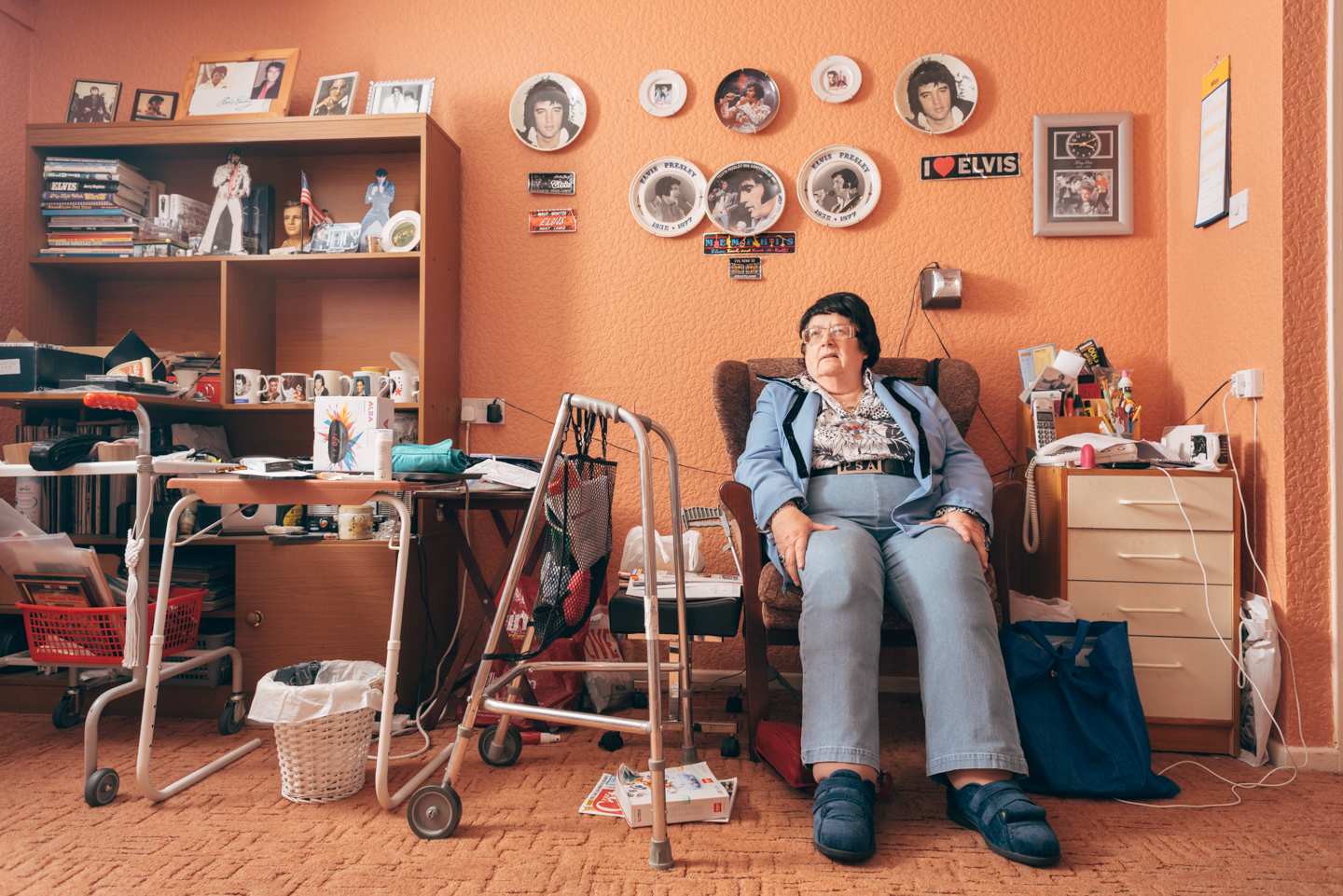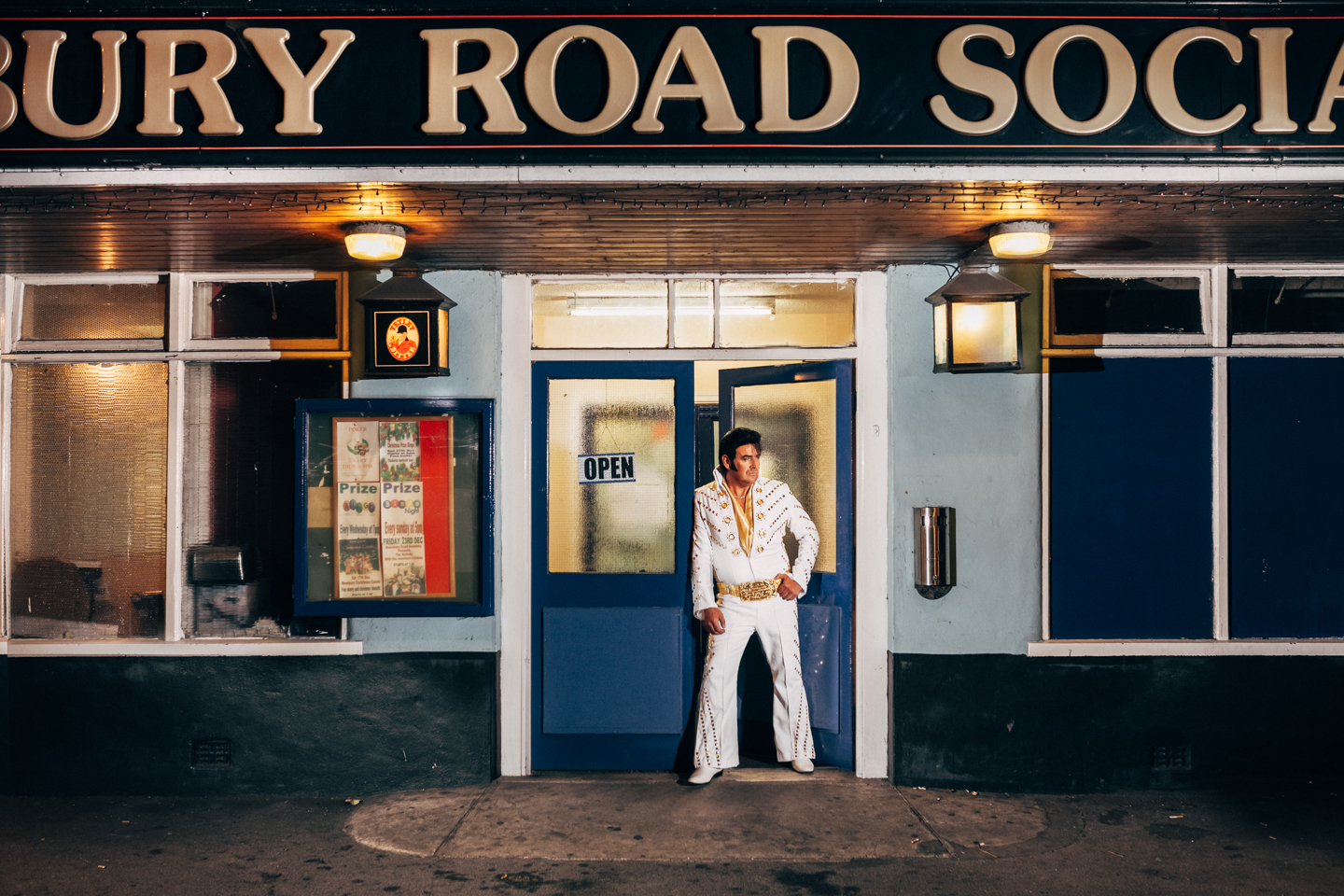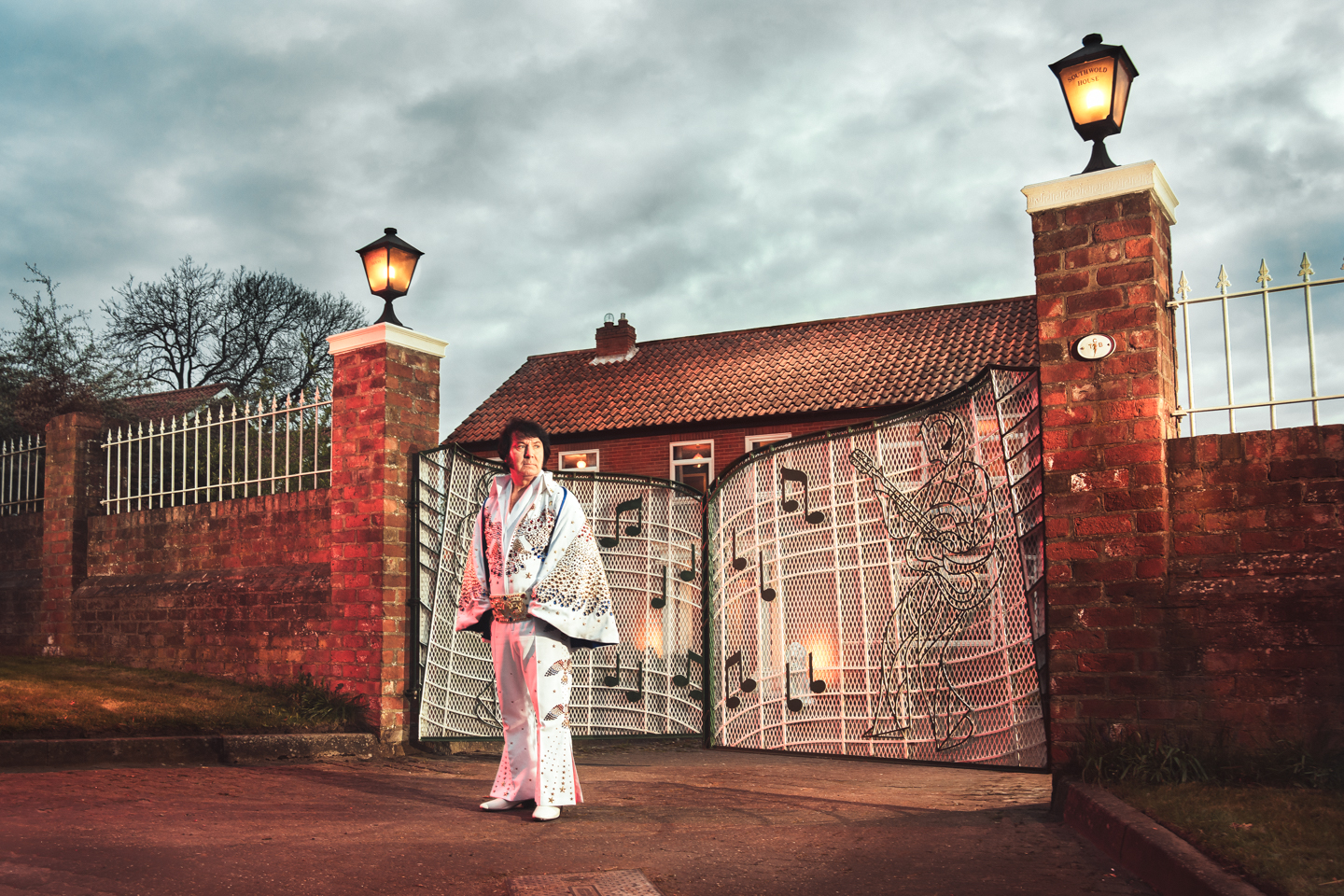Five years ago, Graeme Oxby bumped into a guy he used to know, at a Jet garage in Doncaster. The man was wearing a gold jacket while pumping his Cadillac with 20 quid’s worth of unleaded. He told Graeme that he’d changed his name to Elvis Parkin and that he was “living the dream”. This was the start of Graeme’s photographic journey into the world of Elvis impersonators and what would become his project, The Kings of England. He found the community was larger than he’d ever expected, mostly consisting of middle-aged men from working-class communities.
I spoke to Graeme about his favourite Elvis impersonators, the singer’s appeal to the British working classes and the way he enables men to explore the grey areas at the edges of their masculinity.
Videos by VICE


VICE: Why do you think Elvis is such an important figure in our working-class culture?
Graeme Oxby: I think there are several reasons. Elvis himself was a working-class person, a truck driver before he found fame. There is something about that rags-to-riches story and the American Dream that captures people – particularly the older generation, who were raised on American films and American culture. The idea that a working-class man could become the most famous person on the planet – certainly, the most photographed person on the planet – I think is a real draw. The other thing is there are some incredible songs there. They’re woven into the fabric of working-class life. If you went to any working men’s club between 1965 and the late 1980s, you’d have seen that his music was ubiquitous. And I think the third thing is that it offers working-class men a means of exploring their masculinity – dressing up, caring about your appearance – in a way that’s accepted in their culture. For instance, if they work in a car garage or down a mine, it enables them to be different and to show off, to be a peacock. It’s another way of people being able to express their creativity.


Were there any people who seemed particularly vulnerable to the charms of Elvis impersonation?
What I did find in the five years I spent on the project, was that many of the people turned to Elvis in times of crisis. There was a guy whose son had died at the age of 21; he’d died in his arms from a heart attack. He found that joining the Elvis community helped him overcome his own desperate feelings about what had happened. It’s almost like a religion, I guess. It’s something that people can put their energies into, and it’s a very inclusive and tight-knit community.
Could you tell me about some of your favourite Elvises you’ve met?
So, Elvis Parkin was definitely one of them. The other one I met was Polk Salad Annie. She was a very interesting woman, also from Doncaster and a spirit medium. She performed as Elvis and actually met him in the 70s. She went over to America and saw him at several concerts. That puts her in a very interesting position in the Elvis scene, because her opinion of what people look like, their songs, how they perform, etc is sought out all the time. She’s an expert, and she keeps in touch with The King through séances and the like.
Okay.
Another was a young lad from Yorkshire called Alfie. He fits the mould of someone who’s used Elvis to overcome personal circumstance because he was horribly bullied at school. His father has a life-threatening illness and that was, incredibly, a reason for people to bully him. But he started impersonating Elvis, won a contest and suddenly, he became somebody. This gave him a sense of pride that silenced the bullies. He’s now a big star in the Elvis scene at the age of just 14.

Are you an Elvis fan?
Hell yeah! When I was at art school, I used to work as a labourer for a landscape gardener and he was a massive Elvis fan. He introduced me to all the really early stuff. Elvis when he started was a fabulously good-looking force of nature. Obviously as he went on, things got a little ropey at times. There are periods I love and periods I don’t. But I think much of what he did is still iconic. Loads of people have suggested that I should become an Elvis impersonator myself, but I’ve resisted so far.







The project will be exhibited at this year’s Format Festival in Derby. The Kings of England photo-book is published by Bluecoat Press and is available to buy now.
More
From VICE
-

(Photo via Madison County Sheriff's Department) -

(Photo by Christopher Pike/Getty Images) -

Buckshot on set of the "Hey" Music Video. Credit: Duck Down Music -

Screenshot: Nintendo
